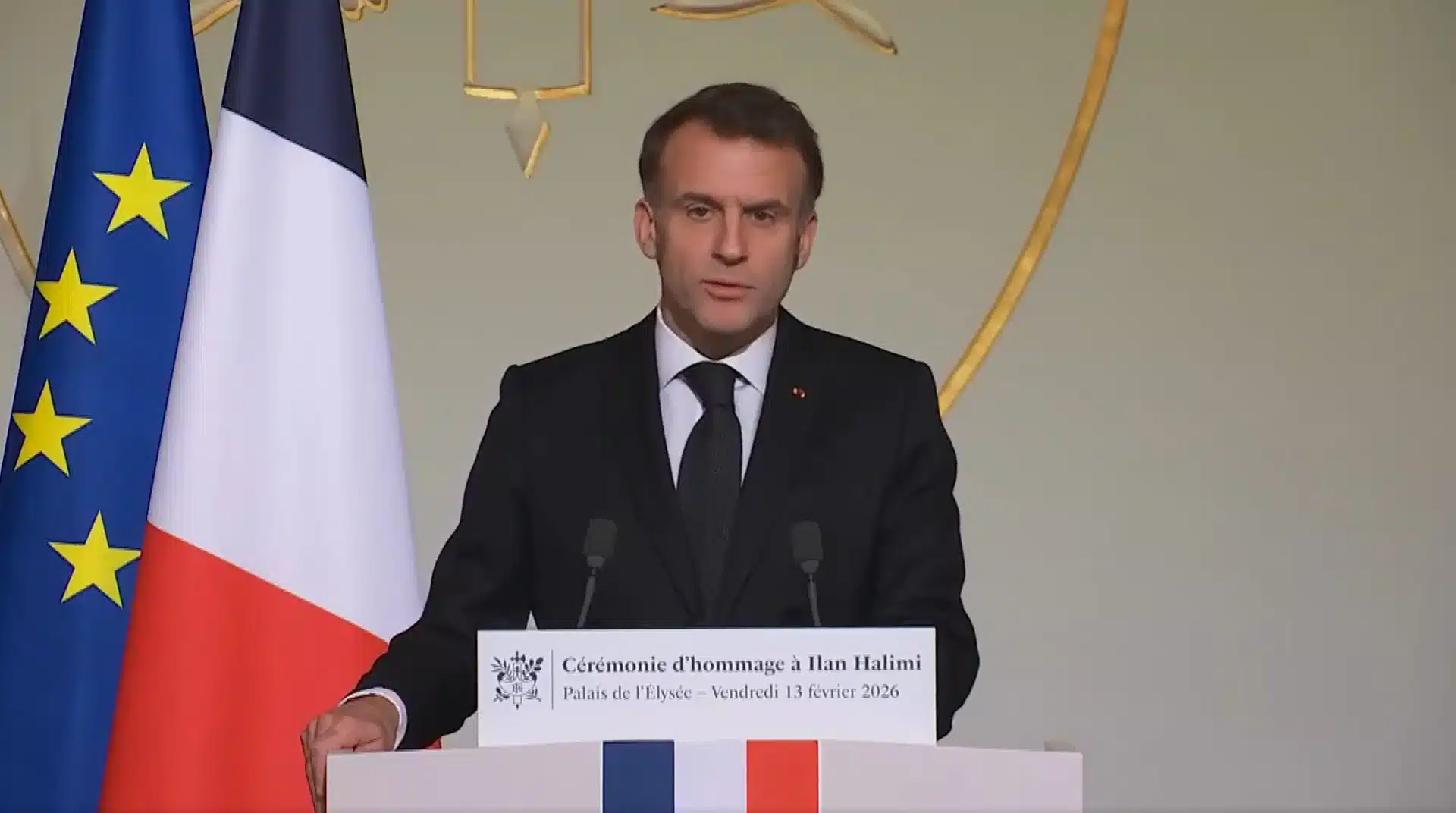

‘Iran’s Leaders, Who Threaten the Existence of Another Country, Should Not Be Welcome Anywhere’ Top Scholar Says
Professor Dina Porat, a Combat Anti-Semitism Movement (CAM) Advisory Board member, is one of Israel’s leading experts in contemporary anti-Semitism and European Jewish history. Porat is chief historian at Yad Vashem and head of the Kantor Center for the Study of Contemporary European Jewry at Tel Aviv University, which recently published a report detailing anti-Semitism in 2020. This annual study found there was a decline in physical anti-Semitic violence due to COVID-19 pandemic-related lockdown measures, but online anti-Semitism and the desecration of synagogues and Jewish cemeteries surged. Professor Porat sat down with CAM to share her insights on anti-Semitism, both modern and ancient, and highlighted some of the greatest threats facing the Jewish people today.
Throughout your career you have specialized both in Holocaust remembrance and fighting contemporary anti-Semitism. Is one more important than the other?
There is no priority or deciding that one of them is more important than the other – they are definitely both important. The two should be done. Researchers and activists are dealing not only with the memory of the Holocaust, but with the history of the Holocaust as well. Recent anti-Semitism, contemporary anti-Semitism, that’s the second part. They complement one another.
As an academic advisor to the International Task Force on Holocaust Education, Remembrance and Research, your views formed an important aspect of what is now known as the IHRA working definition of anti-Semitism. Today this definition faces a new challenge in the form of the Jerusalem Declaration, an alternate definition of anti-Semitism put forward by a group of academics. Should proponents of IHRA be concerned?
You shouldn’t be afraid of this criticism even if academics are leading it. I can tell you that last week, 350 academics signed another letter in favor of the IHRA definition. Also, the IHRA definition has already been adopted, according to research that we have done worldwide, by more than 450 countries, local councils, universities, sports clubs, etc. So it has an international consensus and an academic one: it is a fait accompli, an accomplished fact. It was quite an effort to have it defined and formulated in the early 2000s. It was a common effort of many scholars and organizations, and any change, if at all, needs the consent of all of them.
Now what is the main opposition of these academics, many of whom are not researchers of anti-Semitism? They are all great scholars – I have many friends on this list – but for many of them this is not their main field of research. What they are concerned about is if the IHRA definition will make it difficult to speak freely against Israel’s policies. But the IHRA definition does not hamper any freedom of speech. It is non-legally binding – you can say whatever you like. And the best proof is that it is being said! Day and night, whatever criticism of Israel, inside Israel and outside, with and without a definition. Therefore I’m not concerned.
The Kantor Center’s 2020 Anti-Semitism Report showed that extremist regimes such as Iran have disseminated anti-Semitic lies online throughout the coronavirus pandemic. Why does the international community allow Iran to promote anti-Semitism?
One of the findings was that there was, right from the beginning of the pandemic, an accusation of Jews and Israelis together orchestrating and distributing Covid-19 – all of this to get enormous profit once we developed the vaccination. It is a horrible accusation because this means “the Jews don’t mind people dying by the hundreds of thousands as long as we get rich.” Iran was very active in spreading this accusation.
This goes hand in hand with the denial of the Holocaust which has been rampant in Iran. They say that Israel has been built because of the Holocaust, but there was no Holocaust, then there is no justification [for Israel.]
If you ask me about the international community, I think it is outrageous that leaders of a country that threatens to destroy another country, both UN members, are welcome to speak in the United Nations, or in Columbia University, for instance. Sorry, had they been threatening France or Greece, their leader would not have been invited anywhere. A country that threatens the existence of another – its leader should not be welcome anywhere. And I would also suggest taking a look at the 1948 convention against genocide where it says that the intent itself is enough to be held accountable for. Not just the deed, but the intent, and they express their intention publicly.
You received the Bahat Prize for your Hebrew-language book on Jewish revenge following World War II, which will be published in English next year. The book focuses on the actions of 50 individuals who sought to take justice into their own hands after the horrific events of the Holocaust. How should we approach the subject of revenge and the Shoah? Is vengeance a good response?
Regarding whether vengeance is a good or bad response, I would say the following. The context is the post-war European general context in which all countries that were under German rule were burning with the wish to pay Germany what they thought it deserved. The group of revengers said: “but there is no law that matches such a crime, and there is no recompense, and no one is being punished for the Holocaust.” And they were right. And they said “we want justice, and we want it to be a warning for anyone who will try again his hand against the Jewish people.” But revenge is not within [the norms of] civilization.
Indeed, despite the burning desire of every Jewish survivor to take revenge, they didn’t go this way. They didn’t take this path. Most of the survivors, especially those in the DP camps in Germany, Austria, and Italy, decided intuitively that they would not take revenge. They wanted a new family and a new life. Two-thirds of those who left Europe after the war, after liberation, came to Israel, and one-third to the Americas. That was their wish, to live among Jews, to fight for a Jewish country, to fight the way they were not able to fight during the war and during the Holocaust.
Do you think that anti-Semitic crimes today are dealt with justly by law enforcement?
According to very serious surveys, such as the one made by the FRA (the European Union’s Fundamental Rights Agency) in Vienna, about 75-80% of anti-Semitic attacks are not being reported. Attacks such as minor vandalism and damage to property, personal insults, graffiti, and incitement on the web are not being reported. Why is that? Because the perpetrators are not being caught. People complained, and then they stopped complaining, because it is hard to find the perpetrators who do something and run away, or who are hiding behind all kinds of arguments, such as drugs, or being mentally unfit to stand trial, or [the argument that they were] not really motivated by anti-Semitism.
There is also the problem of facing perpetrators not just from the extreme right, but also from radical Islam. There is fear in certain countries not to pinpoint them so as not to be labeled racist. This is a problem that enables many perpetrators to go unpunished. There is a lot to do from the point of view of changing and tightening legislation so that all perpetrators will be held accountable and the law will not be so lenient towards anti-Semitic violence.
What can be done to combat online anti-Semitism?
What can be done? I believe that stricter regulations and agreements with the big companies – Google, Facebook, Twitter, etc. – will help reduce the number of anti-Semitic posts online. In fact, the number is already coming down, though quite slowly, thanks to such regulations. Also, use of the [IHRA] working definition of anti-Semitsm is a tool to identify anti-Semitic posts, and it should be recommended.
The Antisemitism Report 2020 from the Kantor Center at Tel Aviv University in cooperation with the European Jewish Congress is now available here.










